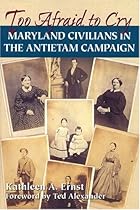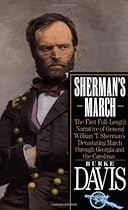9/16/2012
9/06/2012
9/04/2012
Contributors



Revised History
Southern Nationalists



Co-op Website
Southern Heritage News & Views
The Southern War Room
The Southern American
Southern Events Calendar
Yankee War Crimes
Black Confederates
Where I'm Seen!
Flaggers in Action
Fragile Legacies
Southern Thangs
PC Butt Kissers
Truth as I See it
Heritage Alerts
Dixie Videos
Faith Blog
Southern CO-OP
Award of Honour
Support The SWR
Or Mail to:
Hamp Dews
SWR
P.O. Box 1454
Medina, Tx 78055
Hamp Dews
SWR
P.O. Box 1454
Medina, Tx 78055
Previous Posts
- A Repeat Performance--After the Battle Flag Again
- Texas College Students and Marxist Critical Theory
- (Confederate) Flags Across the Ouachita
- Appomattox Wasn't Really the End (Especially for t...
- It's All Cultural Genocide
- Combat Gallery: The Martial Art of Moses Ezekiel
- Mr. Lincoln and Emancipation--Deportation
- Some Minor Disturbance Over What Stephen Dill Lee ...
- Thoughts On Lt. General Stephen Dill Lee's Charge ...
- A Really Big Confederate Flag In Lexington, Virginia
Archives
- October 2011
- November 2011
- December 2011
- January 2012
- February 2012
- March 2012
- April 2012
- May 2012
- June 2012
- July 2012
- August 2012
- September 2012
- November 2012
- December 2012
- January 2013
- February 2013
- March 2013
- April 2013
- October 2014
- November 2014
- December 2014
- January 2015
- February 2015
- March 2015
- April 2015
- May 2015
- June 2015

This is the untold story of the Union's "hard war" against the people of the Confederacy. Wholesale plundering of personal property, and even murder of civilians.

In July 1864, Union General William T. Sherman ordered the arrest and deportation of more than 400 women and children from the villages of Roswell and New Manchester, Georgia. Branded as traitors for their work in the cotton mills that supplied much needed material to the Confederacy.

The battle at Antietam Creek, the bloodiest day of the American Civil War, left more than 23,000 men dead, wounded, or missing. Facing the aftermath were the men, women, and children living in the village of Sharpsburg and on surrounding farms. In Too Afraid to Cry, Kathleen Ernst recounts the dramatic experiences of these Maryland citizens--stories that have never been told--and also examines the complex political web holding together Unionists and Secessionists, many of whom lived under the same roofs in this divided countryside.

Confederate women and men who sought to protect themselves and their family treasures, usually in vain. Dominating these events is the general himself -- "Uncle Billy" to his troops, the devil incarnate to the Southerners he encountered.
Subscribe to
Comments [Atom]









